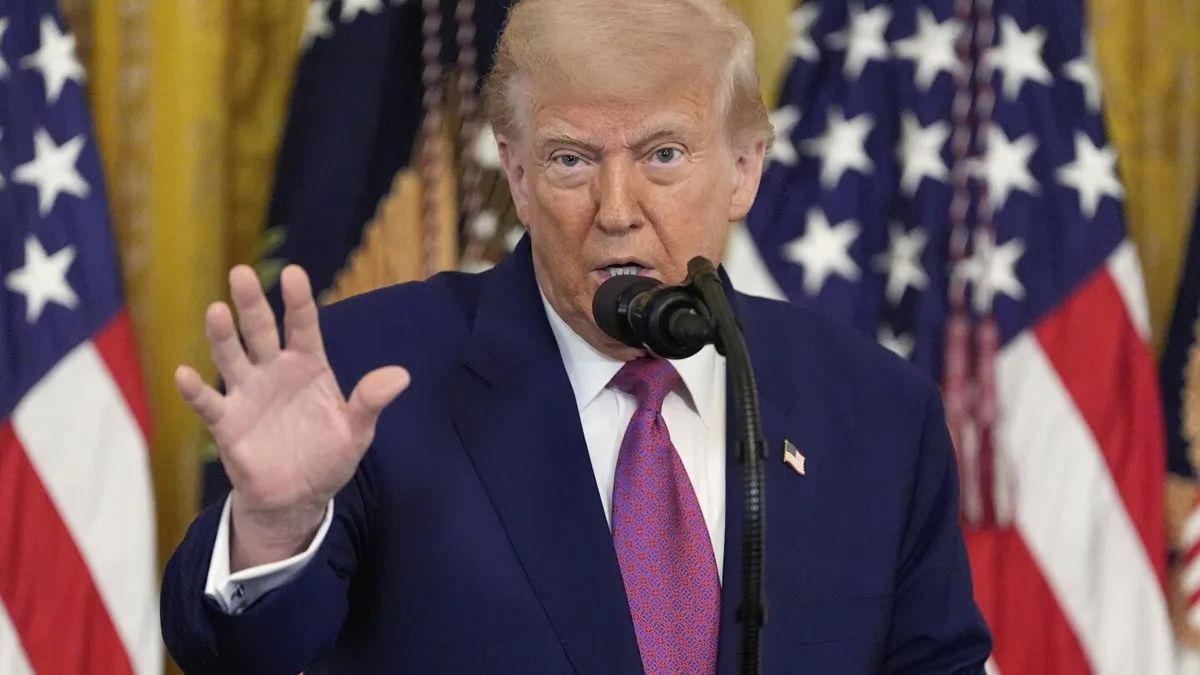
In a significant diplomatic move, President Donald Trump has vetoed a proposal from Israel to eliminate Iran’s Supreme Leader, Ayatollah Ali Khamenei. This decision comes as tensions escalate in the region, with the Trump administration prioritizing stability and seeking to prevent further conflict.
According to a U.S. official familiar with the situation, Israeli officials recently presented a credible plan to the Trump administration aimed at killing Khamenei. After reviewing the plan, the White House promptly conveyed President Trump's strong opposition to Israeli officials. The official, who spoke on the condition of anonymity due to the sensitive nature of the discussions, noted that the administration is determined to prevent Israel's military operations from spiraling into a broader conflict.
During an interview on the Fox News Channel’s “Special Report with Bret Baier,” Israeli Prime Minister Benjamin Netanyahu refrained from directly acknowledging the rejection of the plan. However, he stated, “We do what we need to do, and I think the United States knows what is good for the United States.” Netanyahu suggested that regime change in Iran “could certainly be the result” of the ongoing conflict, emphasizing the perceived weakness of the Iranian regime.
In a series of social media posts, Trump issued a stern warning to Iran, asserting that any retaliation against U.S. targets in the Middle East would provoke a massive military response. He stated, “If we are attacked in any way, shape or form by Iran, the full strength and might of the U.S. Armed Forces will come down on you at levels never seen before.” This statement underscores the precarious situation as Israel and Iran engage in missile exchanges.
As the conflict intensifies, Israel has targeted various sites in Iran, including the Defense Ministry headquarters in Tehran, claiming these locations are linked to Iran’s nuclear ambitions. In response, Iran has launched missiles that have successfully penetrated Israeli air defenses, marking a significant escalation in hostilities that have persisted for three consecutive days.
Despite the growing tensions, Trump remains optimistic about the potential for peace between Israel and Iran. He has expressed confidence that a deal will be reached soon, citing his administration's history of mediating conflicts, including the recent tensions between India and Pakistan. Trump stated, “Likewise, we will have PEACE, soon, between Israel and Iran!” His remarks reflect a commitment to de-escalation while navigating the complexities of Middle Eastern politics.
As the situation evolves, various political figures have voiced their opinions. Some of Trump’s influential supporters, including GOP Georgia Rep. Marjorie Taylor Greene and former Fox News host Tucker Carlson, have urged the President to refrain from involving the U.S. in Israel’s conflict with Iran. Criticism has also emerged regarding the potential for a significant division within the MAGA movement due to differing views on foreign engagement.
Trump is scheduled to attend the Group of Seven (G7) leaders summit in Canada, where the Israeli-Iranian conflict will likely dominate discussions. As he engages with leaders from nations including Britain, Canada, and France, the focus will be on finding solutions that prioritize peace and stability in the Middle East.
The conflict between Israel and Iran poses significant challenges for the Trump administration as it navigates complex international relations. While Trump advocates for diplomacy, the growing military actions and political pressures illustrate the difficulties in achieving lasting peace in the region. The administration's strategy will be closely monitored as tensions continue to rise.